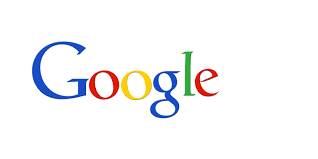10 amazing facts about Google
t’s been 10 years since Google Inc. went public, and a little more than 15 years since Stanford University PhD students Sergey Brin and Larry Page formed the company that has become a universal verb–the “Xerox” of internet search. But you don’t become a verb, or earn notoriety, without engaging in some eye-opening behaviour. From its origins to its future products, from one co-founder interviewing candidates in a cow costume to the company’s attempts to model a genetically perfect human body, here are 20 fascinating facts about Google’s history and company (#19 will blow your mind!).
1. Google’s name is misspelt
The name is a play on the word “googol” (1 followed by 100 zeroes), because Brin and Page wanted to organize a “seemingly infinite amount of information on the web.”
2. Brin and Page are college dropouts (kinda)
Both young men had completed their master’s degrees and were on their way to becoming computer science “doctors” when the matter of a soon-to-be billion-dollar company got in the way.
3. Google’s was once housed in a rented garage
Unlike Steve Jobs, Jeff Bezos (Amazon’s founder), and Bill Hewlett and Dave Packard (HP’s founders), neither Brin nor Page, nor their parents, owned the garage that housed the intrepid entrepreneurs. It belonged to their friend Susan Wojcicki (Google employee no. 18); and apparently, even though they have already been a company for two years, they moved into her garage and paid rent in part to help Wojciki pay her mortgage.
4. Like prisoners, every Google employee has a number
It started with Page and Brin (Google Employees nos. 1 and 2) and extends to the 50 000th employee (Google has roughly 55 000 employees). To some, referring to professionals by a number might seem rude, or cult-like. But if you’re a hugely successful company, you can get away with just about anything.
5. Not every perk at the Googleplex is free
The company is famous for treating its employees to the high life at its “Googleplex” headquarters in Mountain View, California: Free lunch (and breakfast, and dinner), free haircuts, free state-of-the-art gym, and the greatest workplace invention ever, the nap pod (see below). But some luxuries come at a cost, like full-body massages and dry cleaning. And some are downright exorbitant: Google once infamously hiked its onsite daycare costs from $33,000 per child per year to $57,000.
6. Google’s “do what you want” employee perk may be dead or dying
That claim is being made by some current and former employees who bemoan the demise of the Innovation Time Off program. That program lets employees tackle undirected pet projects for one day a week (or 20% of their work hours).
Google.com denies this charge. And that’s good, because it would be sad to lose a perk that resulted in Gmail, Google News, and AdSense (the pay-per-click ad platform, which accounts for 25% of the company’s revenue).
7. Google has lost top talent to its competitors
Several former executives have bolted Mountain View for competitors like Facebook (Gideon Yu, Sheryl Sandberg), Yahoo (Marissa Mayer), and even the U.S. government (Megan Smith.
8. Technically, Google is more than 150 companies rolled into one
The company has acquired nearly 200 technology businesses since its inception, including YouTube, Waze (a GPS navigation app), and GrandCentral, the VoIP platform that now exists as Google Voice.
9. Google doesn’t make “droids”
This may come as a surprise to some iPhone users, who are accustomed to Apple’s hands in every aspect of the products they sell. Google’s primary smartphone product is not hardware, but software: the Android mobile operating system. For a brief period, Google-owned the smartphone manufacturer Motorola Mobility, whose Android-powered phones (one of them is actually called the Droid) make up less than 6% of the Android market. Google’s own Nexus smartphones and tablets– like the new Nexus 6 - are actually manufactured by LG, HTC, or Motorola Mobility.
10. Google Glass may be coming to an airport near you
One of Google’s chief hardware plays is Google Glass, the wearable technology that raised eyebrows when it was unveiled. Richard Branson’s Virgin Atlantic, a consistent technology first-adopter, is the first airline to try Google Glass to scan boarding passenger’s passports.
“People would just write anything on [the Google white board], and [outsiders] would come and say, “Is this for real?” said Edwards to Fast Company. “There was everything from Colonize Mars, to Take Over This Industry—all sorts of things that would not have gone over well with the Justice Department. They were all meant in jest,” he adds, “but we're just close enough to reality that people would be like, Are they really gonna do that?”




Leave Comment